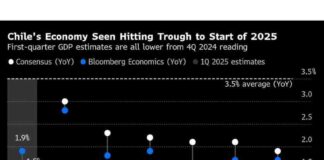Financial Changes Taking Effect in 2025: What to Expect
As the new year unfolds, Canadians are bracing themselves for a slew of financial changes set to take effect in 2025. From tax brackets to CPP contributions, these modifications promise to impact the wallets of individuals across the country. Let’s delve into what these changes entail and how they might affect your financial well-being.
Income Tax Brackets: What You Need to Know
For the upcoming year, income tax brackets are slated to increase by 2.7%, shielding Canadians from being pushed into higher tax brackets due to inflation. The federal tax rates for 2025 are as follows:
– 15% for earnings up to $57,375
– 20.5% between $57,375.01 and $114,750
– 26% between $114,750.01 and $177,882
– 29% for earnings between $177,882.01 and $253,414
– 33% for anything exceeding $253,414
This adjustment means that even if your income remains constant from 2024 to 2025, you will likely pay less tax overall. Brian Quinlan, a chartered professional accountant, emphasizes that this change is a boon for taxpayers, as less income will be taxed at higher rates.
Basic Personal Amount and CPP Contributions: Key Changes
The basic personal amount, which determines the threshold for federal income tax, has been raised for the 2025 tax year. Ranging from $14,538 to $16,129, depending on your income level, this adjustment offers some relief for lower-income individuals.
On the other hand, some Canadian workers will observe an increase in their CPP contributions as part of a multi-year pension enhancement initiative. The earnings ceiling for first-tier earners will climb to $71,300 in 2025, with a subsequent increase to $81,200 for second-tier earners. These adjustments aim to provide enhanced benefits for retirees, ensuring greater financial security in the long run.
Capital Gains Tax and Registered Retirement Savings Plans: Looking Ahead
While the legislation on capital gains tax changes is pending, the proposed alterations could have a significant impact on individuals planning to sell assets in 2025. Under the new rules, a higher tax rate for gains exceeding $250,000 will come into effect, necessitating careful consideration of asset sale timing.
Moreover, the threshold for registered retirement savings will rise to $32,490 in the new year, offering Canadians more room to contribute towards their retirement funds. It’s crucial to stay informed about these changes and plan your financial strategies accordingly to navigate the evolving landscape of 2025.
In a rapidly evolving financial landscape, being well-informed about the changes ahead can empower you to make sound financial decisions. Whether it’s adjusting your tax planning or optimizing your retirement savings, staying abreast of these modifications is key to securing your financial future. So, as 2025 unfolds, take charge of your finances and embrace the opportunities that lie ahead.






















